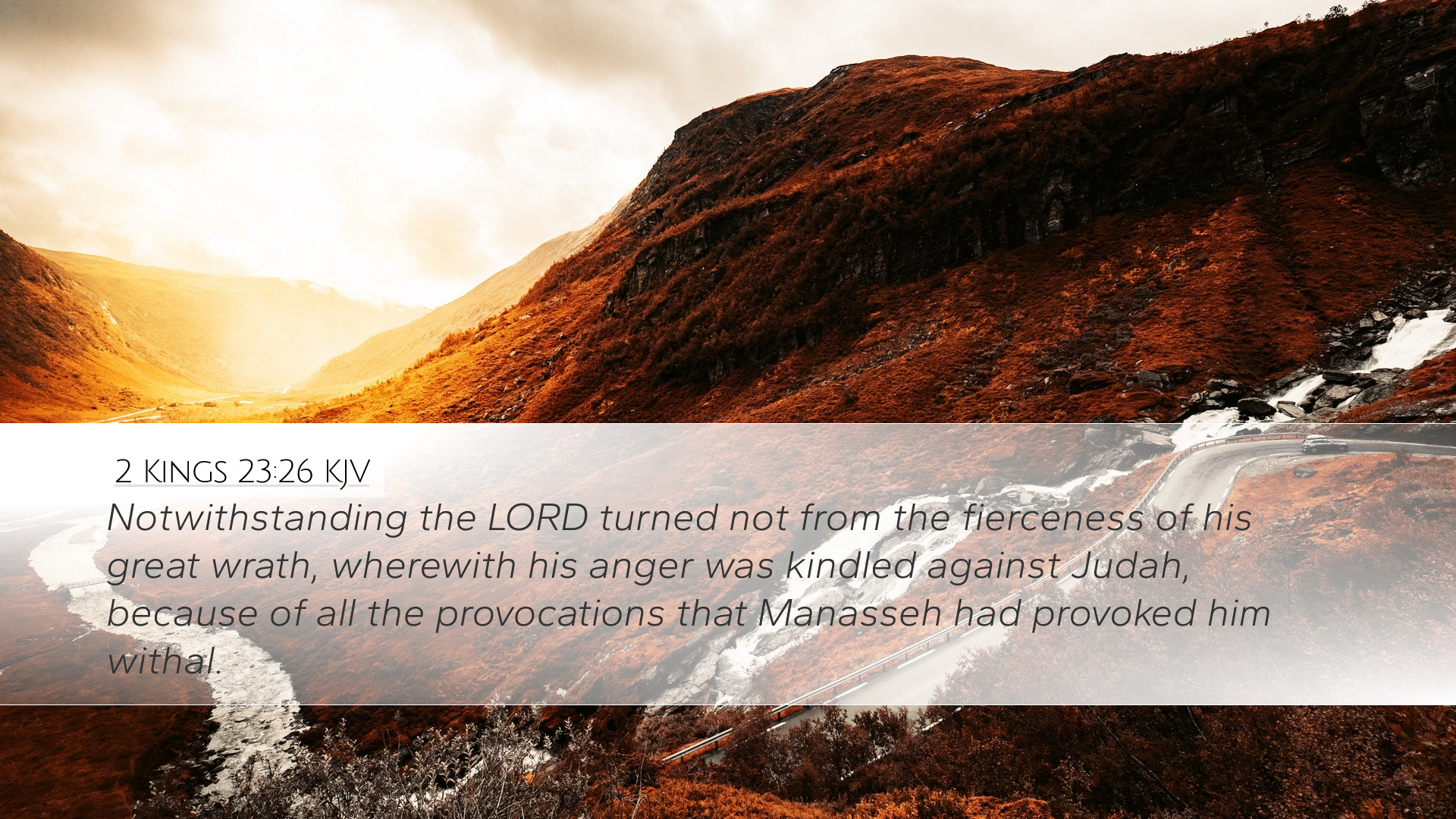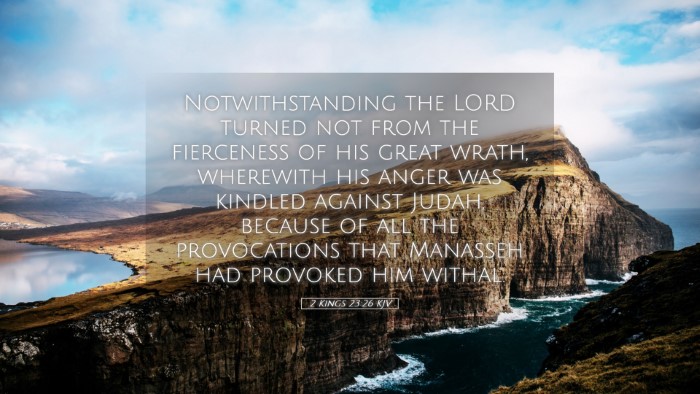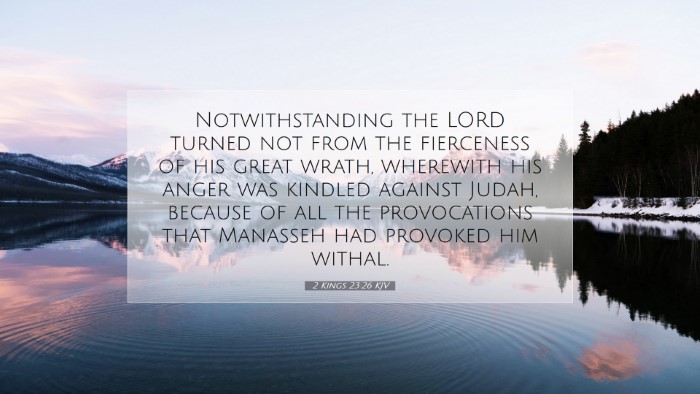Commentary on 2 Kings 23:26
Verse: 2 Kings 23:26
"Notwithstanding, the LORD turned not from the fierceness of his great wrath, wherewith his anger was kindled against Judah, because of all the provocations that Manasseh had provoked him with."
Introduction
This verse serves as a critical reminder of God's unchanging nature and the consequences of sin. The context of this passage follows King Josiah's reforms, showcasing the tension between human repentance and divine judgment. Through insights from various public domain commentaries, we aim to explore the multifaceted implications of this text for believers today, especially for pastors, students, theologians, and scholars.
Historical Context
King Josiah, noted for his religious reforms and efforts in restoring worship to Yahweh, faced the sobering reality of Judah's historical disobedience, particularly the reign of his grandfather Manasseh. It is in this context that we understand the severity of God's wrath outlined in this verse.
Matthew Henry's Insights
Matthew Henry reminds us that while Josiah endeavored to bring the nation back to God, he could not annul the previous decisions made by Manasseh. His commentary emphasizes that "the Lord's wrath is not easily appeased." Henry suggests that God's anger is a response to persistent sin, illustrating the depth of divine justice and the need for true repentance that involves more than mere outward reforms.
Albert Barnes' Perspective
Albert Barnes points to the strength of the phrase "Notwithstanding." This serves to underline that God’s judgment has its roots in His righteousness. Barnes elaborates on the idea that despite the attempts of righteous leaders like Josiah to redirect the nation, the legacy of sin cannot be overlooked. He notes how repeated provocations lead to inevitable consequences and suggests that Judah's history is marked by a cycle of sin, judgment, repentance, and temporary reforms, which ultimately results in lasting repercussions.
Adam Clarke's Commentary
Adam Clarke emphasizes the idea of divine justice and mercy. He posits that while God desires to show mercy, His just nature cannot overlook the severity of sin. Clarke further explains that Manasseh's actions had set a precedent within Judah that led to deep spiritual corruption, and though Josiah's reforms were considerable, the cumulative effect of wickedness during previous generations had prerequisites that could not be simply reversed by a new regime.
Theological Implications
The verse uncovers several theological themes relevant to both individual believers and the church at large.
- God's Righteousness: This verse underscores the principle that God's holiness demands justice. Even as He desires reconciliation, there are unyielding standards that must be honored.
- Generational Consequences of Sin: The reference to Manasseh highlights the enduring influence of sin across generations. This emphasizes a need for corporate repentance and recognition of the broader impact of individual choices.
- Divine Wrath and Mercy: The balance between God’s wrath and mercy is a recurrent theme in Scripture. While God’s mercy is readily accessible, this passage raises the sobering reminder that continued sin can lead to wrath, serving as a warning for present and future generations.
Practical Applications for Believers
The insights drawn from this passage can serve as a powerful exhortation to believers.
- Call to Repentance: Acknowledging the potential consequences of unrepentant sin is vital. Believers are encouraged to pursue genuine repentance and a deeper relationship with God.
- Impact of Leadership: For pastors and church leaders, this verse illustrates the weight of their influence. Good leadership should inspire holiness and a return to God’s ways.
- Understanding Wrath and Grace: The contemplation of God’s wrath invites believers to reflect on the gravity of sin. This understanding can foster a deeper appreciation of God’s grace through Christ.
Conclusion
2 Kings 23:26 serves as a stark reminder of the tension between human effort and divine justice. With insights from esteemed commentators, it becomes clear that while reform and repentance are essential, the reality of God's righteousness must always be acknowledged. As the faithful seek to navigate their spiritual journeys, this verse offers both a warning and a call to a deeper recognition of God’s holiness and mercy. Continuous engagement with Scripture and a commitment to true repentance can lead believers to a more profound understanding of their relationship with God and the importance of holiness in both personal and communal contexts.


